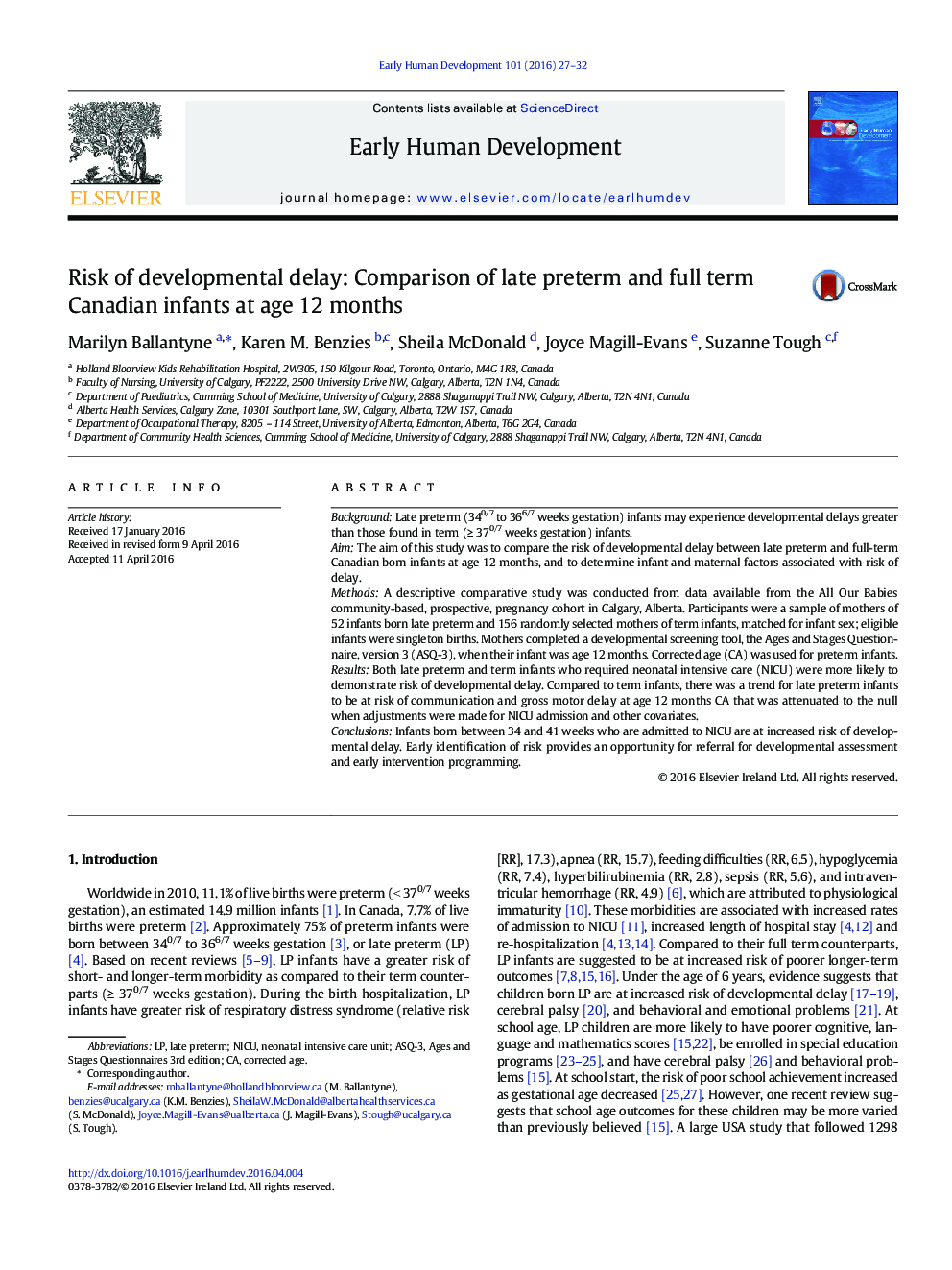| Article ID | Journal | Published Year | Pages | File Type |
|---|---|---|---|---|
| 3916663 | Early Human Development | 2016 | 6 Pages |
•Comparative study of the risk for developmental delay between late preterm and full-term Canadian born infants at 12 months•Both late preterm and term infants who required neonatal intensive care were more likely to demonstrate risk of developmental delay•Compared to term infants, there was a trend for late preterm infants to be at risk of communication and gross motor delay at age 12 months corrected age, which was attenuated to the null when adjusted for NICU admission and other covariates
BackgroundLate preterm (340/7 to 366/7 weeks gestation) infants may experience developmental delays greater than those found in term (≥ 370/7 weeks gestation) infants.AimThe aim of this study was to compare the risk of developmental delay between late preterm and full-term Canadian born infants at age 12 months, and to determine infant and maternal factors associated with risk of delay.MethodsA descriptive comparative study was conducted from data available from the All Our Babies community-based, prospective, pregnancy cohort in Calgary, Alberta. Participants were a sample of mothers of 52 infants born late preterm and 156 randomly selected mothers of term infants, matched for infant sex; eligible infants were singleton births. Mothers completed a developmental screening tool, the Ages and Stages Questionnaire, version 3 (ASQ-3), when their infant was age 12 months. Corrected age (CA) was used for preterm infants.ResultsBoth late preterm and term infants who required neonatal intensive care (NICU) were more likely to demonstrate risk of developmental delay. Compared to term infants, there was a trend for late preterm infants to be at risk of communication and gross motor delay at age 12 months CA that was attenuated to the null when adjustments were made for NICU admission and other covariates.ConclusionsInfants born between 34 and 41 weeks who are admitted to NICU are at increased risk of developmental delay. Early identification of risk provides an opportunity for referral for developmental assessment and early intervention programming.
